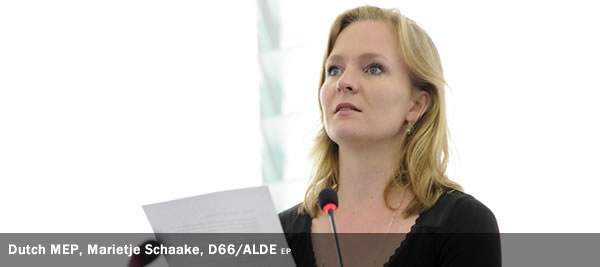Dutch liberal MEP, Marietje Schaake, has called for a debate in the European Parliament on internet governance and what the EU’s strategy should be. “Safeguarding the open internet faces more and more challenges and must be a priority for the EU. Decisions and responsibilities are increasingly in the hands of a diverse group of governments, companies, organisations and internet users. Europe must defend the open internet and the rights and freedoms of its users with the greatest possible ambition,” said Schaake.
She welcomed plans on internet governance presented today by Neelie Kroes, European Commissioner for the Digital Agenda, and called for a debate to clarify the details and place the issue higher on the agenda of the European Parliament.
The European Commission shares Schaake’s concerns with regard to governments attempting to bring the internet under national control. States like Russia and China use the argument of increasing cyber-security to increase control over their own population. Organisations such as ICANN, which registers domain names worldwide, currently function under US law.
Schaake said: “…more inclusiveness and more transparency are needed. Internet governance should become more accessible and comprehensible for people. Nearly every person has an interest in keeping the internet open, whether this is an economic, social or human rights interest.”
Because it is often unclear which laws and decisions affect internet governance, the Commission has announced that it will develop a website to provide more information concerning this issue. It will also launch in-depth research into which (international) legal aspects are relevant. Schaake is also a member of a global commission that will examine internet governance in the coming two years.
The ‘multi-stakeholder’ model, in which all stakeholders informally decide on norms for governing the internet, requires reforms and improvements. It needs to be more accessible, transparent and parties need to be more accountable. Schaake said she also believes it is important that people with responsibilities in the traditional foreign affairs circles are more aware of the role that technology plays. In the past, the European Parliament supported her efforts to develop the first European strategy for digital freedom, which focuses on human rights, trade, defence and other European policies and the role that technology plays.
